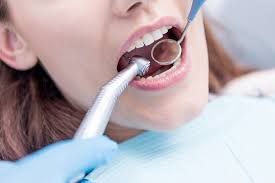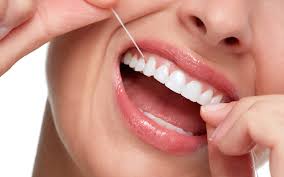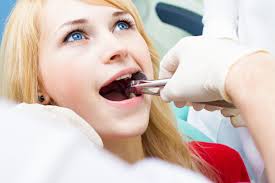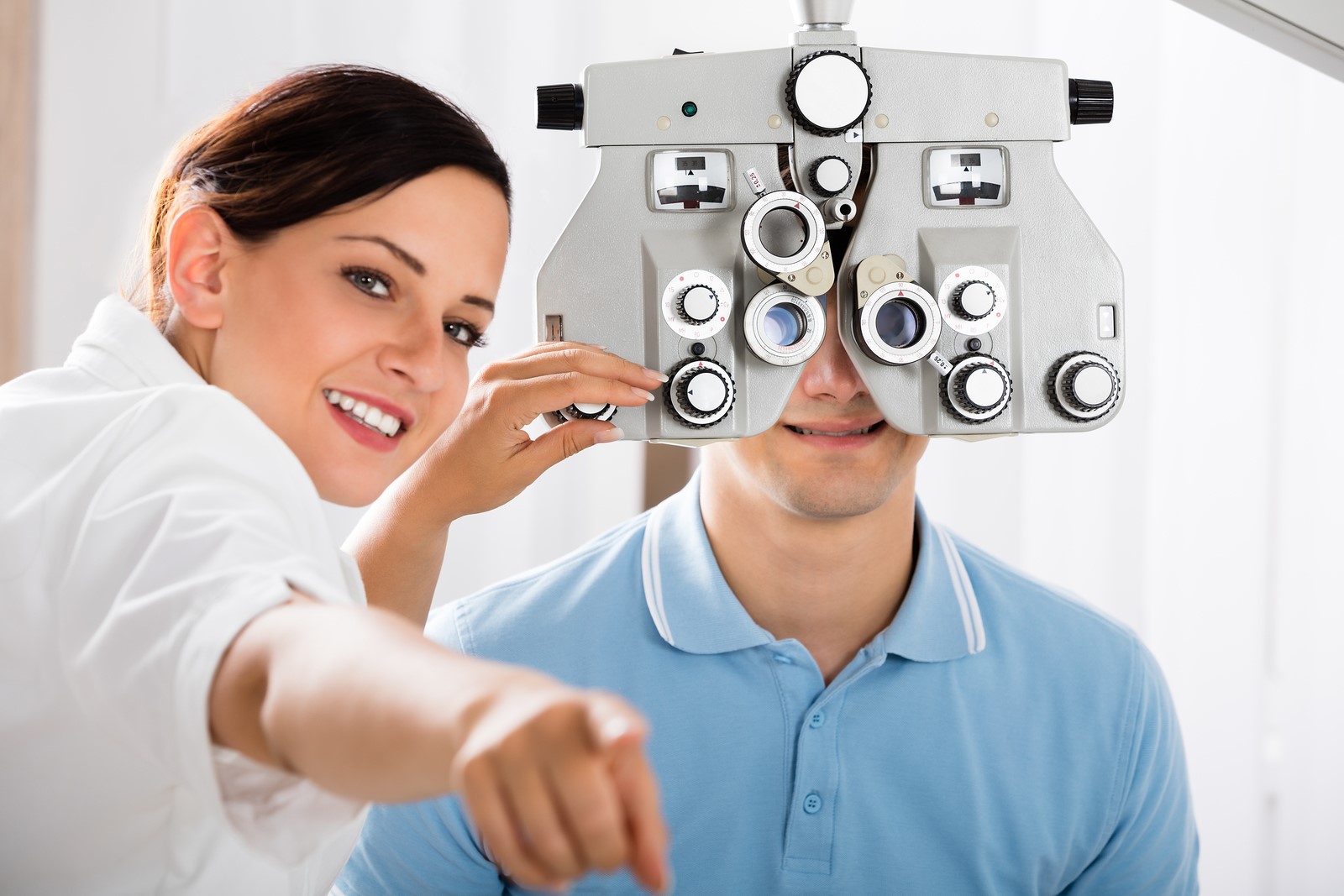As COVID-19 Disrupts Education, Ophthalmology Residents Adapt
When Dr. Charles DeBoer, a second-year resident in the USC Department of Ophthalmology, learned that barrier shields meant to protect patients and physicians from COVID-19 droplet transfer were nationally backordered, he spent his own time and personal resources to build PPE customized for ophthalmic exams
“I saw a barrier shield design in the paper, ‘Stepping up infection control measures in ophthalmology during the novel coronavirus outbreak: an experience from Hong Kong (2020)’ and thought the way they implemented infection control made sense,” said Dr. DeBoer. “So I copied it for our clinics and we refined the design.” In collaboration with co-resident Dr. Diana Lee and two attending physicians, Drs. Vivek Patel and Annie Nguyen, Dr. DeBoer created barrier shields out of polycarbonate sheets for slit lamps, the microscopes used to look into patients’ eyes.
In addition, residents are continuously implementing the latest COVID-19 industry responses provided by the American Academy of Ophthalmology (AAO). They are strengthening their history taking skills to learn more about their patients’ health histories, and have increased in-depth provider-to-provider discussions with their fellow residents, fellows, and faculty. Furthermore, residents are learning how to use new technology to provide telehealth services to meet patient needs.
Dr. Hua elaborated that patients often call with eye problems that can be resolved over the phone. Several patients who tested positive for COVID-19 have called with concern that they are developing an eye infection, as well. “In this situation, we ensure that the patient has no vision-threatening issues. We educate and counsel them on supportive care, emphasize the importance of social distancing, and make sure they practice good hygiene. As a result, we minimize exposure for everyone.”
Due to the California Governor’s Executive Order, as well as LA County requirements, clinic volume has been drastically limited to only treating patients with emergency eye conditions. The residency program has taken additional measurements to decrease the likelihood of a COVID-19 infection by having residents rotate in teams at LAC+USC, one week on and one week. In addition, KMC clinics are only seeing urgent patients and all elective surgeries have been canceled. Due to these changes, residents are not rotating in Keck clinics.

Helpful Winter Eye Care Tips
When the snow and cold of winter begin to roll in, we often take steps to protect ourselves from the impending cold and flu season. But it may surprise you to know that the cold of winter may have a few potential risks in store for our vision as well.
Dry Air
As outdoor temperatures drop during the winter, the air becomes colder and can no longer hold as much atmospheric water vapor–humidity–as warmer air present during the rest of the year. Cold winter winds are especially dehydrating to our eyes and skin which are comprised mostly of water. When the air is dry, the eye surface—which is 99 percent water—loses moisture content to accelerated evaporation and can become dry, dehydrated and irritated.
Reflected UV Radiation
It’s commonly known that excessive UV exposure from direct sunlight puts us at greater risk for skin cancer and can even lead to cataracts—hence the reason we’re advised to wear sunglasses and sunscreen during long periods of outdoor activity. UV radiation can also be reflected from the snow and while it may not always cause a sunburn, it poses just as great a threat to our vision health.
Indoor Air
Dry air isn’t just problematic outside during the cooler months. When we heat our homes during the winter, the cold, dry air from outside is heated up and forced indoors. Warm dry air is even more dehydrating than cool dry air and creates an uncomfortable and dehydrating environment for our eyes and skin. Recirculated indoor air also contains other dehydrating factors such as ambient skin flora and bacteria, in far greater amounts than fresh outdoor air.
Although the cold, dry air of winter may not be ideal for optimal vision health, there are plenty of solutions to keep your eyes clear, comfortable, and healthy, such as:
Keep your eyes moist. Placing houseplants or a humidifier in your home can drastically improve dry indoor air conditions. Moisturizing eye drops can relieve dry eyes as well. Feel free to ask your Vision Source® optometrist which drops would be right for you.
Wear sunglasses in the winter. Choose sunglasses with UV protection to ensure your vision is safe from snow-reflected sunshine.
Consider wearing eyeglasses more frequently than contact lenses. Regular eyeglasses do a better job of protecting your eyes from the cold winter winds and can even help hold heat and moisture close to the eyes.

Comprehensive Eye Exam
At Lentz Eye Care in Wichita Kansas and Newton, our optometrist provide thorough eye exams using the latest technology, but we also take time to listen to your needs and explain your options
Routine eye exams include:
Physical eye health exam. The external and internal parts of the eyes are examined using special instruments like a slit lamp biomicroscope, binocular indirect ophthalmoscope and special focusing lenses. Your pupils may be dilated with eye drops for some of these tests.
Refraction. This test determines your eyeglass or contact lens prescription and we perform precise measurement in several different ways to determine the lens formula that will work best for you. Instruments used include computerized autorefractor, phoroptor and retinoscope, but an important part of prescribing lenses is for the doctor to understand how you use your eyes at work and leisure.
Binocular vision testing. We test your eye coordination to be sure your vision is comfortable and that your eyes work well together. This includes an analysis of the eye muscles used for movement, focusing and depth perception. If you have a problem with binocularity, your doctor may correct it with prescription glasses or recommend vision therapy.
Tonometry. This is one of several risk factors for glaucoma that we evaluate. It is a measure of the fluid pressure inside the eye. We offer a couple of ways to do this test: 1) a new generation of air puff test that is very gentle and quiet, 2) Goldmann tonometry, which is a device with a blue light that shines at the eye.
Visual field test. Every comprehensive exam includes a screening of your peripheral vision with a computerized autoperimeter. You click a hand-held button when you see shimmering squares off to the side. It takes about 1.5 minutes per eye and it can help diagnose or rule out neurological disorders of the visual system.
Optos retinal photography. The Optomap scanning laser takes a digital color photograph of the back of your eye. This test is recommended on a routine basis to provide your doctor with a baseline record of the appearance of your retina, internal blood vessels and optic nerve. It is also used to document diseases and anatomical abnormalities and monitor them over time.
Macular Pigment Optical Density. MPOD is a measure of the risk for developing age-related macular degeneration (AMD), which is the leading cause of blindness in the United States. This screening test measures the density of pigment cells in the macula and it is recommended for all patients 18 and over. This test is evaluated along with 10 other AMD risk factors. Patients with a low macular pigment score may take nutritional supplements which will provide protection against macular degeneration and could even restore the pigment layer.
Specular endothelial microscopy. A microscope magnifies the cells thousands of times and the image is captured with a camera. The reason for this exam is to monitor the number, density and quality of endothelial cells that line the back of the cornea. Healthy endothelial cells keep the cornea clear.
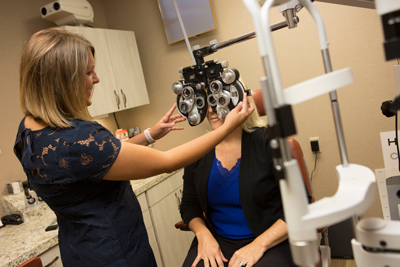
Eye Health: How to Care For Your Eyes Naturally
From small, practical activities, like looking up a phone number, to life-changing events, like looking into your baby’s eyes for the first time, your eyes play an important role each and every step of the way. Here a few simple ways you can protect and care for them naturally.
Refresh your eyes morning and night
After a night of sleep or a busy day, your eyes will feel less tired and more vibrant when you splash them with water. One of the first things you do upon waking and before going to sleep is to brush your teeth right? So either before, or after brushing your teeth, take a moment to fill your mouth with water and hold it for a few seconds with your eyes closed. This puts a slight pressure from inside to push the eyes outward. Spit the water out. Now splash your eyes and face with slightly warm, or cool water several times. Never use hot or cold water on the eyes.
Remember to relax your eyes
We live amidst a constant stream of information transmitted through cell phones, computers, tablets, and televisions. There are movies on airplanes and televisions in taxis. There are touch-screens at the airport to check you in, and touch-screens at the supermarket to check you out. There are apps to check the weather, and GPSs in the car so you don’t get lost. With so much time spent looking at screens, it’s no wonder our eyes feel strained. In fact, there’s even a term for it. CVS. Computer Vision Syndrome
To ease the strain it is important to relax your eyes. Here are some helpful tips:
For every hour spent focusing on the screen, take 10 minutes to take a short walk around the block, or sit by a window and have a glass of water or cup of tea. Relax your eyes by gazing at the horizon, the trees in the distance, or something in nature.
Blink often to renew moisture.
Palm your eyes by rubbing both hands together quickly for several seconds to create a mild heat. Close your eyes and gently place the palms over your eyes for a minute or so. Breathe gently. Repeat 2 or 3 times. If it’s hot outside, or if your eyes are burning and red, instead of rubbing the palms together, run your hands under cool water, dry them, and then gently place them over your closed eyelids.
Adjust your computer screen or seat so that your eyes are slightly higher than the screen, and your gaze is cast ever so slightly downward. This will relieve your neck and face from getting overly stiff.
Exercise your eyes
We give a lot of attention (hopefully!) to making sure our bodies stay strong and flexible, our core muscles don’t weaken, and our hearts stay vital. But how many of us do the same for our eyes? Although doing eye exercises may not keep you from needing glasses, they can help your eyes feel refreshed and vibrant. Here is a simple exercise.
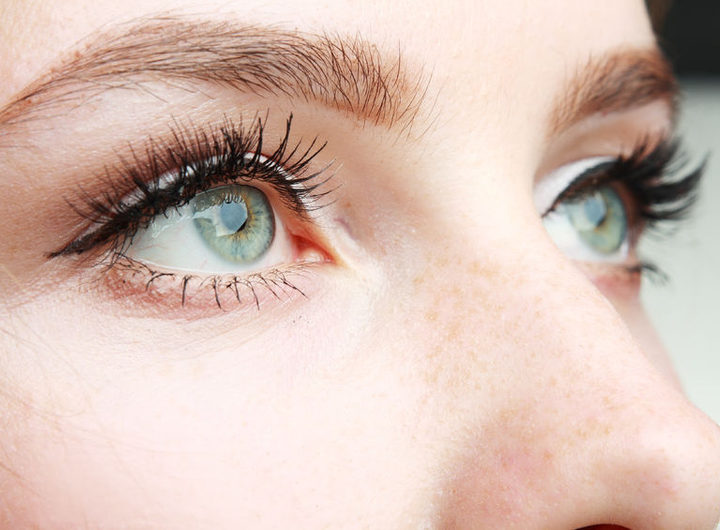
Eye Care Tips & Information
We’ve compiled our top eye care tips for you and your loved ones so that you never miss out on special moments. From nutrition to protection, discover expert advice on keeping your eyes healthy through every season of life.
Equip Your Kid to Succeed: Unusual changes in your child’s behavior may be due to changes in their vision. Discover the signs that your loved one needs to see an eye doctor
Eye Care Tips for your Children
Signs Your Kids Might Have Poor Vision: Learn the tell-tale signs that your child might need to see their eye doctor.
Can She See at School?: One in four school-age children have a vision problem – find out if your child does too.
Importance of Eye Exams for Kids: Discover why you should add “eye exam” to your child’s back-to-school list every year.
Why Kids Need Eye Care: Discover the top five reasons why you should bring your child in for an eye exam every year.
Why Your Eye Health Is Vital: When it comes to vision, there’s more than meets the eye. Discover what your eye exam could reveal about your health.
There are ways to help if you know what to look for.
If you have been lucky enough to have never needed eyeglasses or contact lenses in your life, encountering eye problems as you get older can be a bit frustrating. One year Spring is in bloom and the next it might be hard to see leaves on a tree. Difficulty reading or working on a computer is a good indication that your focusing ability may be suffering due to aging eyes Keep reading to learn five of the most common signs that your vision is potentially changing.
You need more light.
A common eye condition is needing more light to see as you age. Brighter lights in your work area or next to your reading chair always have to be on to help make reading and other close-up tasks easier.
